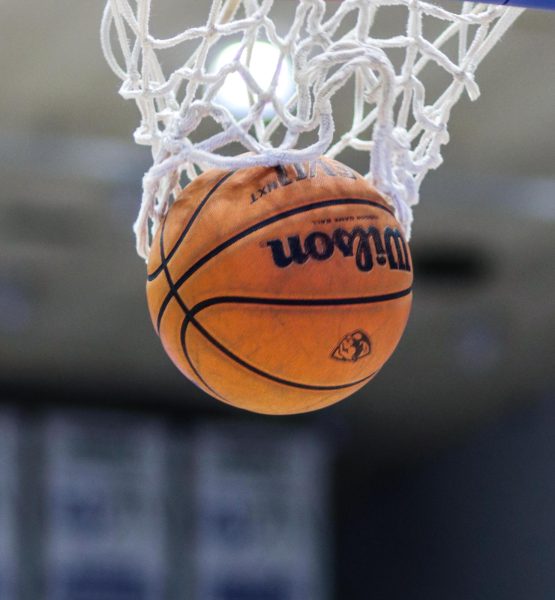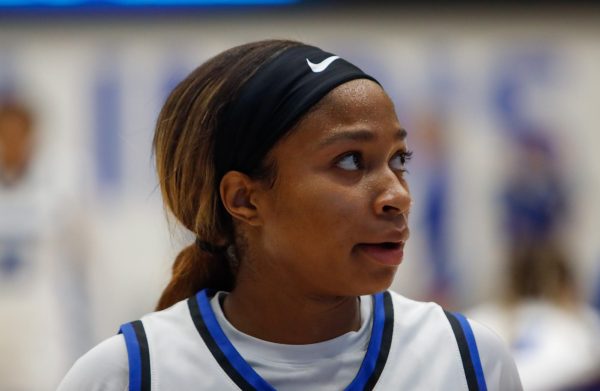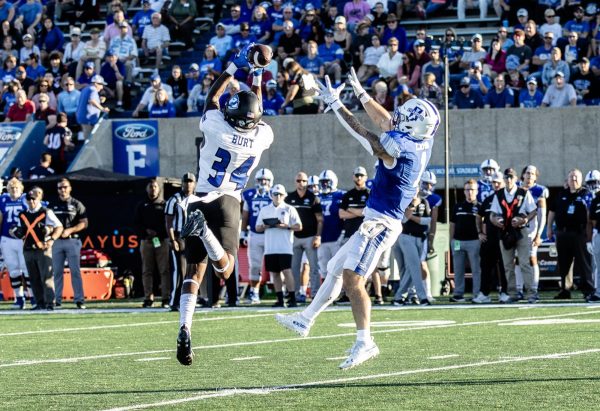The best of both worlds
Jim Schmitz came to Eastern in 1995 looking for a head coaching position that would give him the support he wanted but also the chance to settle down with his family.
He had already been the head baseball coach for two under-funded programs and an assistant for a powerhouse team with a coaching legend.
Twelve years and 300 wins later Schmitz is happy that he made the choice he did.
“My wife kept asking me ‘why are we going to move to Charleston, Ill.,'” Schmitz said. “My answer was I was finally going to be on the same level as the competition as a head coach. Eastern promised me they were going to join the OVC during my interview, which clinched it for me.”
Schmitz began his collegiate coaching career for his alma mater, Wilmington College in Ohio. He led Wilmington to its first ever NAIA district 22 playoff appearance and its first winning season in eight years. He did all this while also earning his master’s degree in Sports Administration at Ohio State University.
After three seasons at Wilmington, he moved on to the University of Cincinnati and the now-defunct Metro Conference.
While Cincinnati did not fund its team at a high level and the recruiting was mainly limited to the surrounding areas, Schmitz did have his team competing at a high level against top teams like Florida State, South Carolina and Tulane. He led his 1987 Bearcats’ team to 31 wins, the second most in school history. In four seasons at Cincinnati, he led his teams to the first back-to-back winning seasons since the Bearcats joined the Metro. He also took them to two conference finals.
He then decided to take an assistant coaching job at the University of Mississippi under former Chicago Cub Don Kessinger. He became the Ole Miss recruiting coordinator and in 1993 assembled the 17th best recruiting class in the country, according to Collegiate Baseball.
All of this experience prepared him to take over for Dan Callahan as the Panthers head coach in 1995.
“I think I learned to coach in Cincinnati,” Schmitz said. “But I learned to recruit at Ole Miss. It was ironic; the last three years I was at Ole Miss we signed some of the better players out of Chicago. We got them out of schools like Sandburg and Thornwood and I knew the area so I kind of had an in with the high school coaches.”
When Schmitz first took over, the Eastern baseball program was in a rut.
“It was a program with a tiny little field with wooden bleachers you didn’t even want to sit in because you would fall right through,” Schmitz recalls. “The mentality was ‘they don’t support baseball we are not going to care.’ They practiced like they had no pride in who they were and whom they played for. I told them if you play well and start winning then the support comes.”
The success came immediately as Schmitz turned a team with no returning starting pitchers into the Mid-Continent champions two years in a row.
“The talent was there. We ended up 28-19 and won the Mid-Con,” said Schmitz. “The first two years in the Mid-Con we won hands down. It was just about changing the attitude.”
In 1997 Eastern’s athletic department made the change to the Ohio Valley Conference for almost every sport and now baseball had a better conference with more warm weather, southern schools. Another benefit was a mandatory scholarship rule in place for baseball.
“In the OVC you have to give a minimum of 10 scholarships in baseball so it puts everyone on the same level,” Schmitz said.
In 1999 Schmitz and the Panthers captured the OVC Tournament Championship trophy and earned their first ever trip to the NCAA Division I Regionals. The Panthers placed third in their four-team regional, finishing behind Baylor and Minnesota but knocking No. 21 Arizona out of the tournament. With that success came benefits.
“I remember flying back from Baylor when we went to the regional,” Schmitz said. “(Athletic Director) Rich McDuffie showed me the plans for this new stadium and I told the players that this was their stadium, they put some titles on the board, they earned it.”
That stadium turned out to be Coaches’ Stadium, which opened in 2002.
Last season’s media guide said that Schmitz would most likely become the winningest coach in EIU history but Schmitz’s worst season as a head coach left him tied with former coach Tom McDevitt at 299 victories. He had to wait one more season to reach the 300-win milestone, but according to junior pitcher Brandon Murphy, it didn’t look like it was that big of a deal for Schmitz.
“He was totally normal,” Murphy said. “He didn’t even act like it was anything special. Everybody knew about it, but he didn’t say anything about it. He just said ‘300 had to come sometime’ after the game and that was all.”
McDevitt felt the same way about the 300-win milestone.
“300 didn’t mean anything to me,” McDevitt said. “It was much more satisfying for me to see my players graduate and go on to professional ball, and I am sure it is the same way for Schmitz.”
McDevitt still lives in Charleston and keeps up on the team and talks with Schmitz regularly. He sees many more years of success for the Panthers and Schmitz.
“Schmitz is young still,” McDevitt said. “He could coach for another 12 years or more. I hope he wins another 300; he is a really great coach, very knowledgeable and encouraging. He is a great coach for Eastern and he should be around for a long time.”





































































